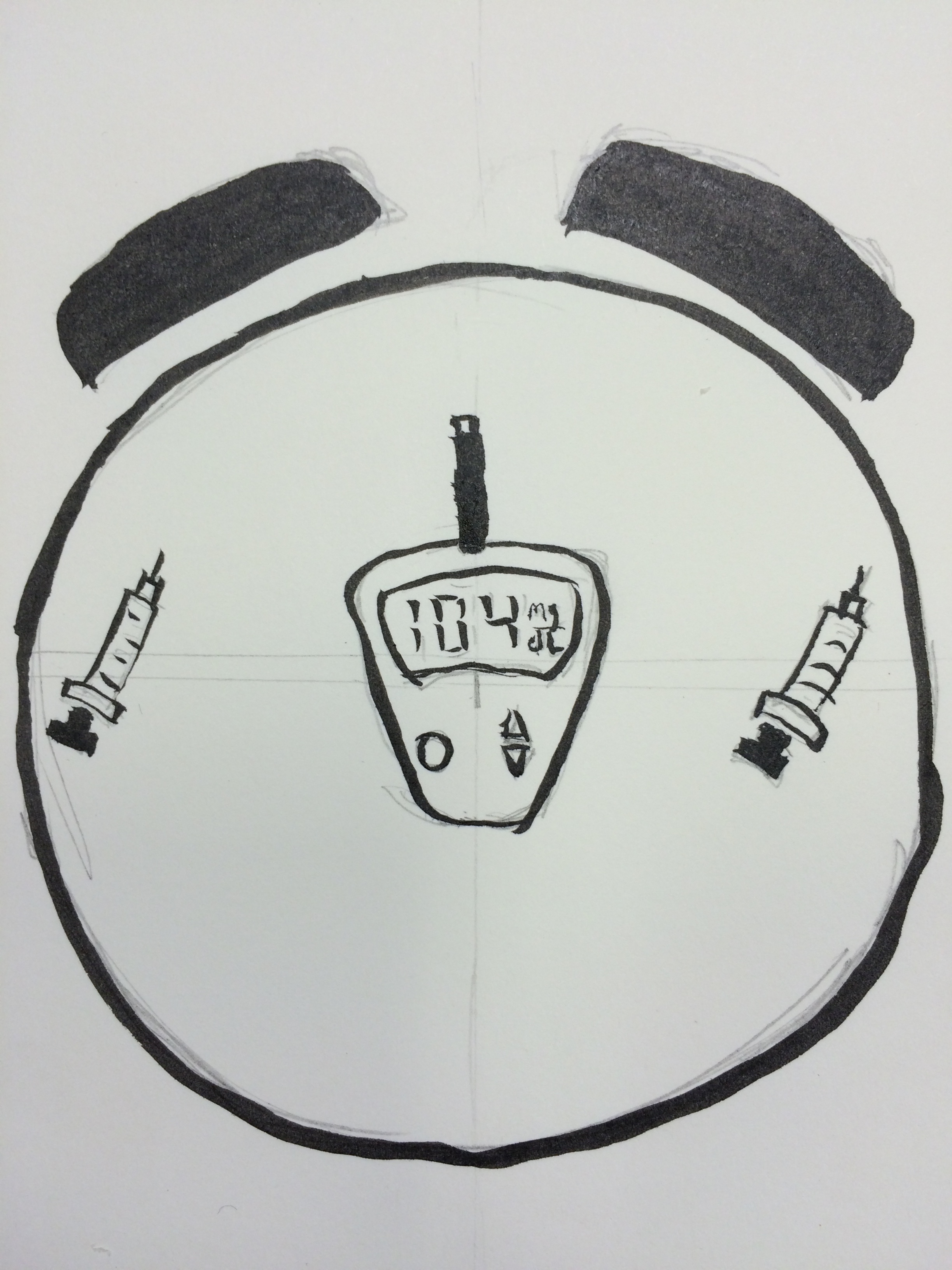Diabetic Time
Scott Bailey
I’ve been reading a number of articles lately about the experience of time in chronically and terminally ill persons. Several of them mention diabetes as an illness that typifies the way in which chronic illnesses can affect time perception through requiring a structuring of the day around bodily needs and the application of technologies to manage the body/self.
Here’s my first rough go at trying to represent just this structuring of time:
For diabetics (or caregivers) who must regularly check blood sugar and do insulin injections, the day can often end up standardized around these activities. I chose to sketch a clock with a glucose monitor in the center, the test strip serving as the hand of a clock, with hypodermic needles at two points on the clock, indicating the way in which insulin injections can structure the experience of time.
This is, of course, a rather reductionist approach. It doesn’t take into account various types of diabetes, the personal relation of anyone to the daily activities of diabetes, or the other difficult parts of the illness, such as planning balanced, healthy meals. It does, though, try to take a stab at re-imagining our most common way of measuring time through inscribing common, illness-specific activities as common measurements.
Some of the relevant articles:
-
Morris, David. “Diabetes, Chronic Illness and the Bodily Roots of Ecstatic Temporality,” Human Studies, 31: 399-421 (2008).
-
Borrett, David S. “Heidegger, Gestell and rehabilitation of the biomedical model,” Journal of Evaluation in Clinical Practice, 19:497-500 (2013).
-
Gergel, Tania L. “Illness perception, time perception and phenomenology - an extended response to Borrett,” Journal of Evaluation in Clinical Practice, 19: 501-508 (2013).

